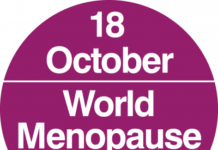Heart disease survival rates are improving and fewer people are dying prematurely from coronary heart disease thanks to improved detection and the ban on smoking in public places, according to a new report published today.
Deputy Health Minister Vaughan Gething launched the second All Wales Annual Report on Heart Disease today and announced the Welsh Government has invested more than £2m in equipping Welsh ambulances with state of the art defibrillator monitors.
Key findings from the annual report include:
-
Improved detection, the ban on smoking in public places and public health efforts have reduced the number of people dying prematurely from coronary heart disease. In Wales, 400 fewer people died in 2012 than in 2010.
-
Almost 97% of adults aged between 35 and 74 survive following a hospital admission for a heart attack.
-
However, the number of patients with high blood pressure, which can increase the risk of developing cardiovascular conditions, continues to rise.
Vaughan Gething said:
“This report highlights some of the excellent work taking place in hospitals across Wales. The findings illustrate the quality of care being provided for people with heart disease, and crucially how survival rates are increasing.
“The report shows our commitment to transparency and sets out where the NHS is doing well and where it needs to improve, so that we can make sure that people of all ages, wherever they live and whatever their circumstances have access to excellent NHS care.
“It’s good to see that progress is being made across a whole range of measures, thanks to NHS and other public sector staff who are involved in the planning and delivery of care for people with heart disease. We now need to build on this to ensure we have the right services in place throughout Wales to help reduce the risk of cardiovascular disease.”
Thanks to Welsh Government funding, the Welsh Ambulance Services Trust has bought 140 new defibrillator monitors which are being rolled out on frontline emergency ambulances across Wales over the next two years.
Mr Gething added:
“These new devices allow live ECGs to be sent from an ambulance direct to clinicians and specialist labs, so that the patient is diagnosed quickly and receives the most appropriate treatment. Some of these units are already in place and are already helping to ensure that patients get the best possible care after a heart attack.”
Help keep news FREE for our readers
Supporting your local community newspaper/online news outlet is crucial now more than ever. If you believe in independent journalism, then consider making a valuable contribution by making a one-time or monthly donation. We operate in rural areas where providing unbiased news can be challenging. Read More About Supporting The West Wales Chronicle























